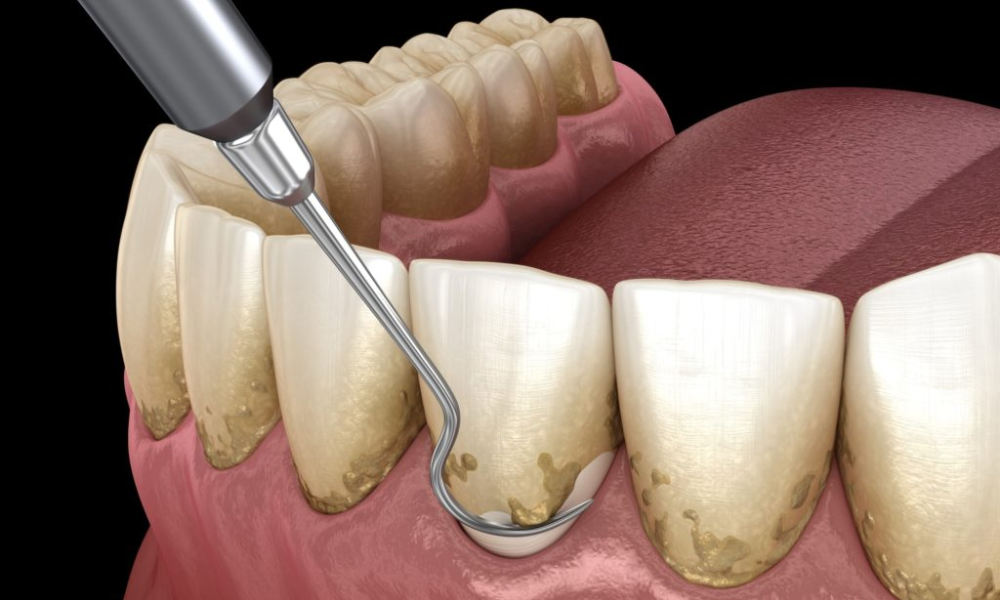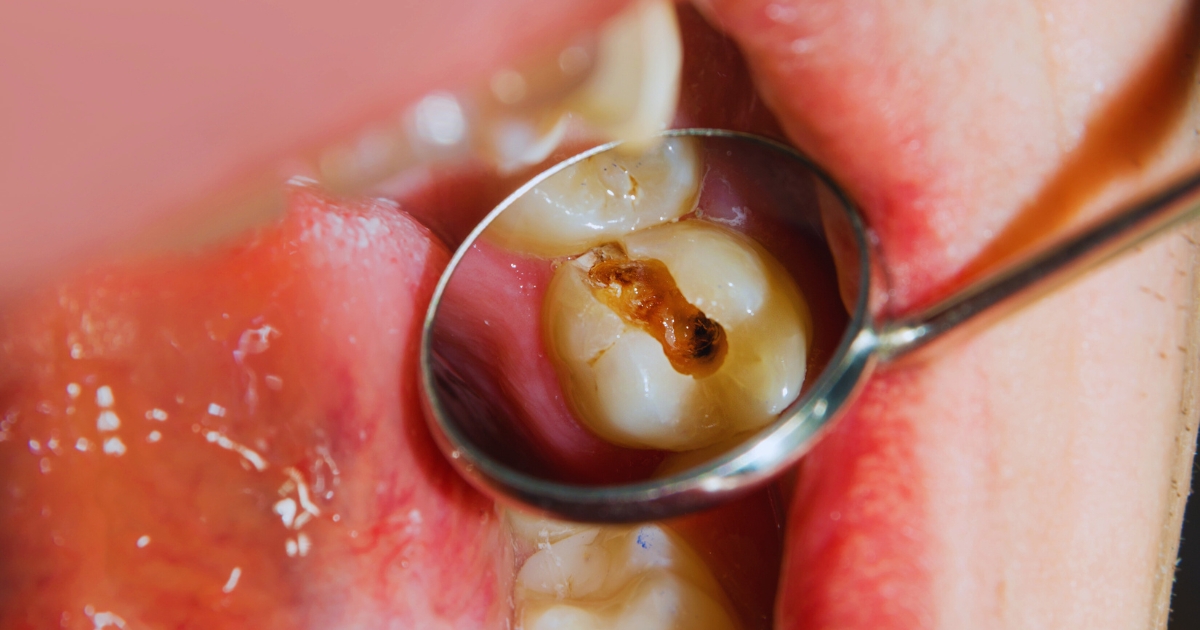Call Us Today 817-737-7668

Maintaining a healthy smile goes beyond just regular brushing and flossing. Periodontal disease, a common yet preventable condition, can sneak up on anyone, leading to serious health issues if ignored.
Have you ever wondered what steps you can take to protect your gums and teeth from this hidden threat?
This blog explores essential tips to help you prevent periodontal disease and keep your smile bright and healthy.
From understanding the symptoms to establishing a solid oral hygiene routine, we’ll cover everything you need to know. Whether you’re already facing gum issues or simply want to be proactive, this guide offers valuable insights tailored to your needs.
Read on and discover how small changes in your daily habits can make a big difference in preventing periodontal disease. Let’s empower you to take charge of your oral health, ensuring that every smile you share is a healthy one!
Periodontal Disease: What Is It?
Periodontal disease is an infection that affects the gums and bone supporting your teeth. It starts with gingivitis, the early stage marked by inflammation and bleeding gums. If untreated, it can progress to periodontitis, leading to gum recession and tooth loss. The primary causes include:
- Poor Oral Hygiene: Inadequate brushing and flossing allow plaque buildup.
- Genetics: Some people are genetically predisposed to gum disease.
- Smoking: Tobacco use significantly increases the risk.
Periodontal disease can develop silently, making it crucial to understand its causes and risk factors. By recognizing these early, you can take proactive measures to protect your dental health.
Recognizing the Symptoms
Identifying the symptoms of periodontal disease early can save your smile. Common signs include:
- Swollen or Bleeding Gums: Noticeable discomfort while brushing or flossing.
- Persistent Bad Breath: Foul-smelling breath that doesn’t go away.
- Receding Gums: Gums that pull away from your teeth, making them appear longer.
- Loose Teeth: Teeth that feel unstable or shift position.
Early detection is essential. If you notice any of these symptoms, consult your dentist promptly. Catching issues early can prevent progression to more severe stages.
Establishing a Robust Oral Hygiene Routine
A strong oral hygiene routine is your first line of defense against periodontal disease. Here’s how to establish one:
- Brushing: Use a soft-bristled toothbrush. Brush twice a day for at least two minutes. Use fluoride toothpaste to strengthen teeth.
- Flossing: Don’t skip this crucial step! Floss daily to remove plaque and food particles between teeth.
- Mouthwash: Use an antimicrobial mouthwash to reduce bacteria and freshen breath.
Effective techniques matter! Ensure you brush in circular motions and reach all surfaces of your teeth. Regularly changing your toothbrush every three to four months also helps maintain its effectiveness.
Regular Dental Check-Ups
Professional cleanings and examinations are vital for preventing periodontal disease. These visits help identify issues before they escalate. Here’s what to know:
- Frequency: Schedule dental check-ups every six months, or as recommended by your dentist.
- Professional Cleanings: These remove tartar and plaque that regular brushing can’t reach.
- Examinations: Dentists assess your gum health, identifying any signs of periodontal disease.
Think of these visits as an investment in your health. Consistent professional care significantly reduces your risk of developing serious gum issues.
Nutrition and Its Impact on Oral Health
Your diet plays a significant role in maintaining gum health. Essential vitamins and minerals support oral hygiene. Focus on:
- Vitamin C: Found in citrus fruits and leafy greens, vitamin C promotes healthy gums.
- Calcium: Essential for strong teeth, it’s abundant in dairy products, almonds, and green vegetables.
- Omega-3 Fatty Acids: These found in fish can help reduce inflammation.
Incorporate these foods into your diet to promote healthy gums and teeth. Avoid sugary snacks and beverages that contribute to plaque formation.
Lifestyle Changes to Prevent Gum Disease
Your lifestyle can significantly influence your risk of periodontal disease. Consider these factors:
- Smoking: It severely damages gum tissue. Quitting can greatly improve your gum health.
- Stress: High-stress levels can lead to gum disease. Engage in relaxation techniques like yoga or meditation.
- Hydration: Drink plenty of water to help wash away food particles and bacteria.
Making small, practical changes in your daily life can greatly reduce your risk of gum disease and improve your overall health.
Understanding the Role of Genetics in Gum Health
Genetics can influence your susceptibility to periodontal disease. Discussing your family history with your dentist can provide insights into your risk. Consider the following:
- Family History: If family members have suffered from gum disease, be proactive in monitoring your oral health.
- Genetic Testing: Some dentists may offer genetic testing to assess your risk factors.
Being aware of your genetic predispositions allows you to tailor your preventive measures effectively.
Home Remedies and Natural Solutions
In addition to professional care, several home remedies can complement your oral hygiene routine. Consider these natural solutions:
- Salt Water Rinse: Mix salt in warm water to reduce inflammation and kill bacteria.
- Essential Oils: Oils like tea tree oil and clove oil can provide antibacterial benefits. Dilute them before use.
- Green Tea: Rich in antioxidants, green tea can help reduce inflammation and improve gum health.
While these remedies can be beneficial, they should not replace professional treatment. Always discuss any new methods with your dentist.
The Connection Between Overall Health and Gum Disease
Periodontal disease doesn’t just affect your mouth; it can influence your overall health. Studies show a connection between gum disease and systemic health issues, including:
- Heart Disease: Inflammation from gum disease can contribute to heart problems.
- Diabetes: Poor oral health can complicate diabetes management.
- Respiratory Issues: Bacteria from gum disease can enter the lungs, leading to respiratory infections.
Prioritizing your gum health is essential for your overall well-being. Maintaining a holistic approach will benefit both your mouth and your body.
Taking Action: Creating a Personalized Prevention Plan
Taking charge of your oral health means creating a personalized prevention plan. Here’s how to get started:
- Assess Your Needs: Reflect on your dental history and current habits.
- Set Goals: Determine what changes you want to make, such as improving your diet or increasing dental visits.
- Track Progress: Keep a journal to monitor your oral care routine and any changes in your gum health.
By staying proactive, you can reduce your risk of periodontal disease and ensure a healthier smile for years to come. If you need professional assistance, consider seeking periodontal disease treatment in Fort Worth, TX for tailored advice and care.
Taking proactive steps to prevent periodontal disease can significantly enhance your oral health and overall well-being. By incorporating daily hygiene practices, regular dental check-ups, and mindful nutrition into your routine, you can maintain a bright, healthy smile. Remember, a personalized prevention plan tailored to your needs empowers you to stay ahead of potential issues. Start today, and give your gums the care they deserve for a lifetime of dental health!





